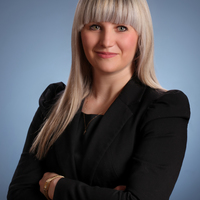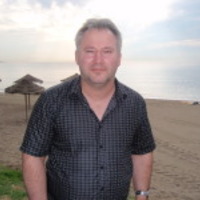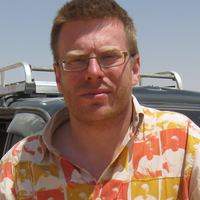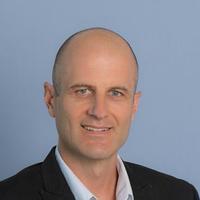
Bozena Iwanowska, PhD
* PhD
* Assistant Professor at the Department of Social Sciences (www.vizja.pl - University of Economics and Human Sciences in Warsaw, Poland)
* Director of the UEHS Academic Center for Holocaust and Genocide Reseach (https://vizja.pl/en/research-centres/). Certified Data Analyst (Data Analysis Tools & Statistical Analysis Software, ANACONDA // WHISPER).
* Research Summary
Her main research interests include: political discourse analysis, Holocaust research (local history) & Jewish Studies, law & legal Language studies, translation studies.
* Resume Summary
Bożena Iwanowska, PhD, is an Assistant Professor at the University of Economics and Human Sciences (Warsaw, Poland) and Director of the UEHS Academic Center for Holocaust and Genocide Research. She received her three Master’s degrees in English Philology and Interpreting, Cultural Studies and Political Studies at the University of Białystok (Poland) and Lancaster University (UK). In 2013 she earned her PhD focused on the legitimacy of power & political discourse analysis from the Institute of Philosophy and Sociology of the Polish Academy of Sciences under the supervision of the leading Polish sociologist Professor Andrzej Rychard, and scholarly reviews of other leading Polish sociologists and political scientists, Professor Henryk Domański and Professor Andrzej Skrzypek. Dr. Iwanowska is also a Holocaust Educator: she completed more than 50 courses organized by the Tel Aviv University, Yad Vashem The World Holocaust Remembrance Center, University College London, The Open University, University of Nottingham, University of Birmingham, ADL and USC Shoah Foundations, POLIN Museum of the History of Polish Jews, JCCs in Kraków and Warsaw. She is one of the authors of a specialized course entitled “Introduction to the Holocaust, Major Genocides of the 20th and 21st Centuries, Violence, Human Rights and Remembrance Course” which is taught to the UEHS students coming from more than 60 countries around the world. Dr. Iwanowska is a member of the British Alumni Society (since 2009), Polish Association for Jewish Studies (since 2012).
Dr. Iwanowska is the recipient of George Soros Open Society Foundations Fellowship (2008-2012), several EHRI Fellowships (incl. EHRI Conny Kristel Fellowship 2023) and RESILIENCE TNA Fellowship Programme for 2023–2024 in Israel.
Address: b.iwanowska@vizja.pl
* Assistant Professor at the Department of Social Sciences (www.vizja.pl - University of Economics and Human Sciences in Warsaw, Poland)
* Director of the UEHS Academic Center for Holocaust and Genocide Reseach (https://vizja.pl/en/research-centres/). Certified Data Analyst (Data Analysis Tools & Statistical Analysis Software, ANACONDA // WHISPER).
* Research Summary
Her main research interests include: political discourse analysis, Holocaust research (local history) & Jewish Studies, law & legal Language studies, translation studies.
* Resume Summary
Bożena Iwanowska, PhD, is an Assistant Professor at the University of Economics and Human Sciences (Warsaw, Poland) and Director of the UEHS Academic Center for Holocaust and Genocide Research. She received her three Master’s degrees in English Philology and Interpreting, Cultural Studies and Political Studies at the University of Białystok (Poland) and Lancaster University (UK). In 2013 she earned her PhD focused on the legitimacy of power & political discourse analysis from the Institute of Philosophy and Sociology of the Polish Academy of Sciences under the supervision of the leading Polish sociologist Professor Andrzej Rychard, and scholarly reviews of other leading Polish sociologists and political scientists, Professor Henryk Domański and Professor Andrzej Skrzypek. Dr. Iwanowska is also a Holocaust Educator: she completed more than 50 courses organized by the Tel Aviv University, Yad Vashem The World Holocaust Remembrance Center, University College London, The Open University, University of Nottingham, University of Birmingham, ADL and USC Shoah Foundations, POLIN Museum of the History of Polish Jews, JCCs in Kraków and Warsaw. She is one of the authors of a specialized course entitled “Introduction to the Holocaust, Major Genocides of the 20th and 21st Centuries, Violence, Human Rights and Remembrance Course” which is taught to the UEHS students coming from more than 60 countries around the world. Dr. Iwanowska is a member of the British Alumni Society (since 2009), Polish Association for Jewish Studies (since 2012).
Dr. Iwanowska is the recipient of George Soros Open Society Foundations Fellowship (2008-2012), several EHRI Fellowships (incl. EHRI Conny Kristel Fellowship 2023) and RESILIENCE TNA Fellowship Programme for 2023–2024 in Israel.
Address: b.iwanowska@vizja.pl
less
Related Authors
Andreas Umland
National University of "Kyiv-Mohyla Academy"
Greg Simons
Turiba University
Markus V . Hoehne
Universität Leipzig
Armando Salvatore
McGill University
Bernard M Levinson
University of Minnesota
Oleg Yu Vorobyev
Siberian Federal University
Ahmar Mahboob
The University of Sydney
Benjamin Isakhan
Deakin University
Alejandra B Osorio
Wellesley College
Yoav Peled
Tel Aviv University
InterestsView All (93)









Uploads
Research by Bozena Iwanowska, PhD
attention is paid to confronting political and sociological views, which place emphasis on the social reception and acceptance of power, with
the concepts of lawyers, for whom formal aspects are more important. The author also introduces the English-speaking reader to a different way
of understanding the term ‘legitimacy of power’ among Polish researchers, which is a result not only of their original scientific concepts, but also
of semantic differences between the term itself in Polish and English
Papers by Bozena Iwanowska, PhD
attention is paid to confronting political and sociological views, which place emphasis on the social reception and acceptance of power, with
the concepts of lawyers, for whom formal aspects are more important. The author also introduces the English-speaking reader to a different way
of understanding the term ‘legitimacy of power’ among Polish researchers, which is a result not only of their original scientific concepts, but also
of semantic differences between the term itself in Polish and English